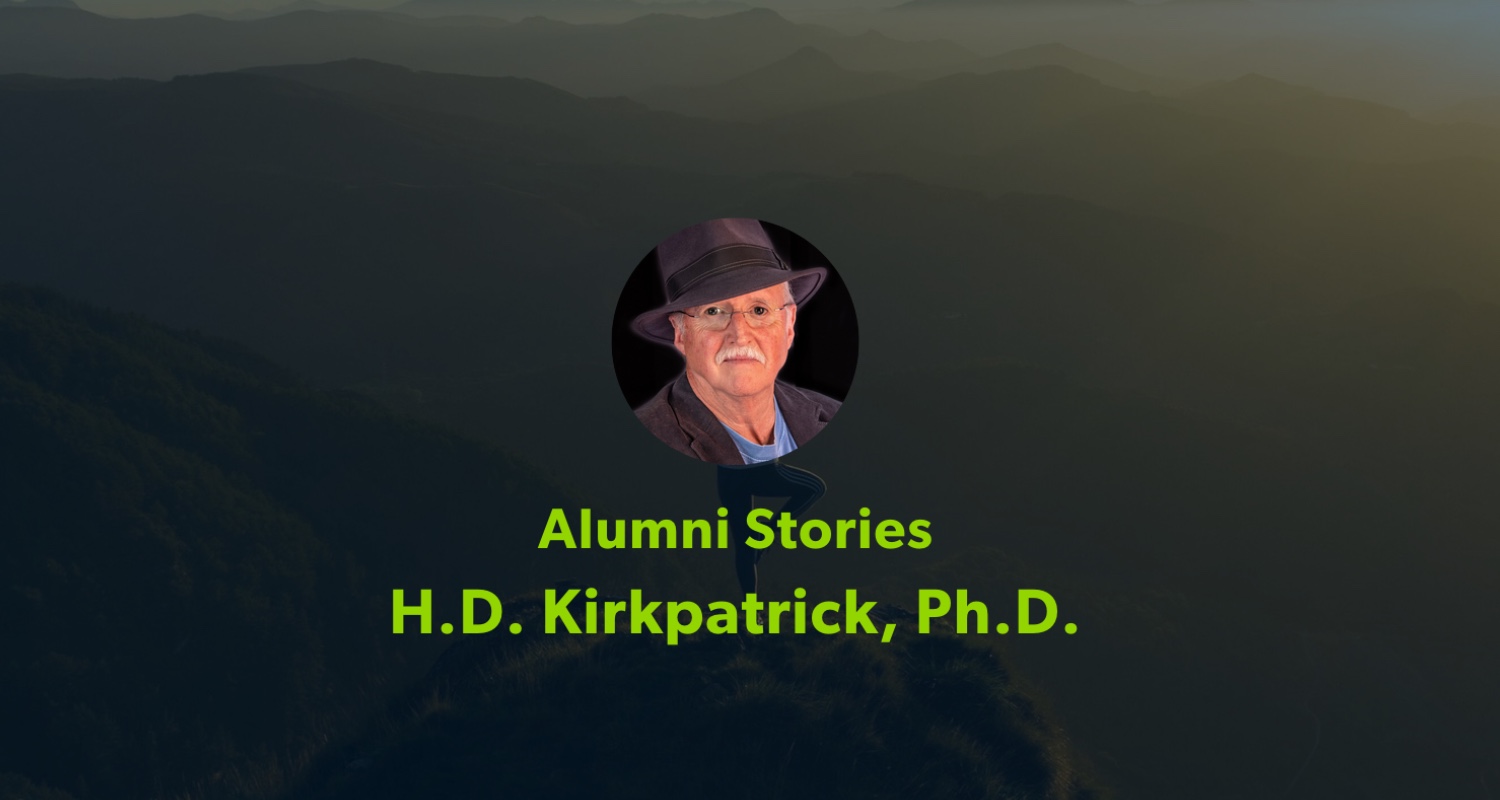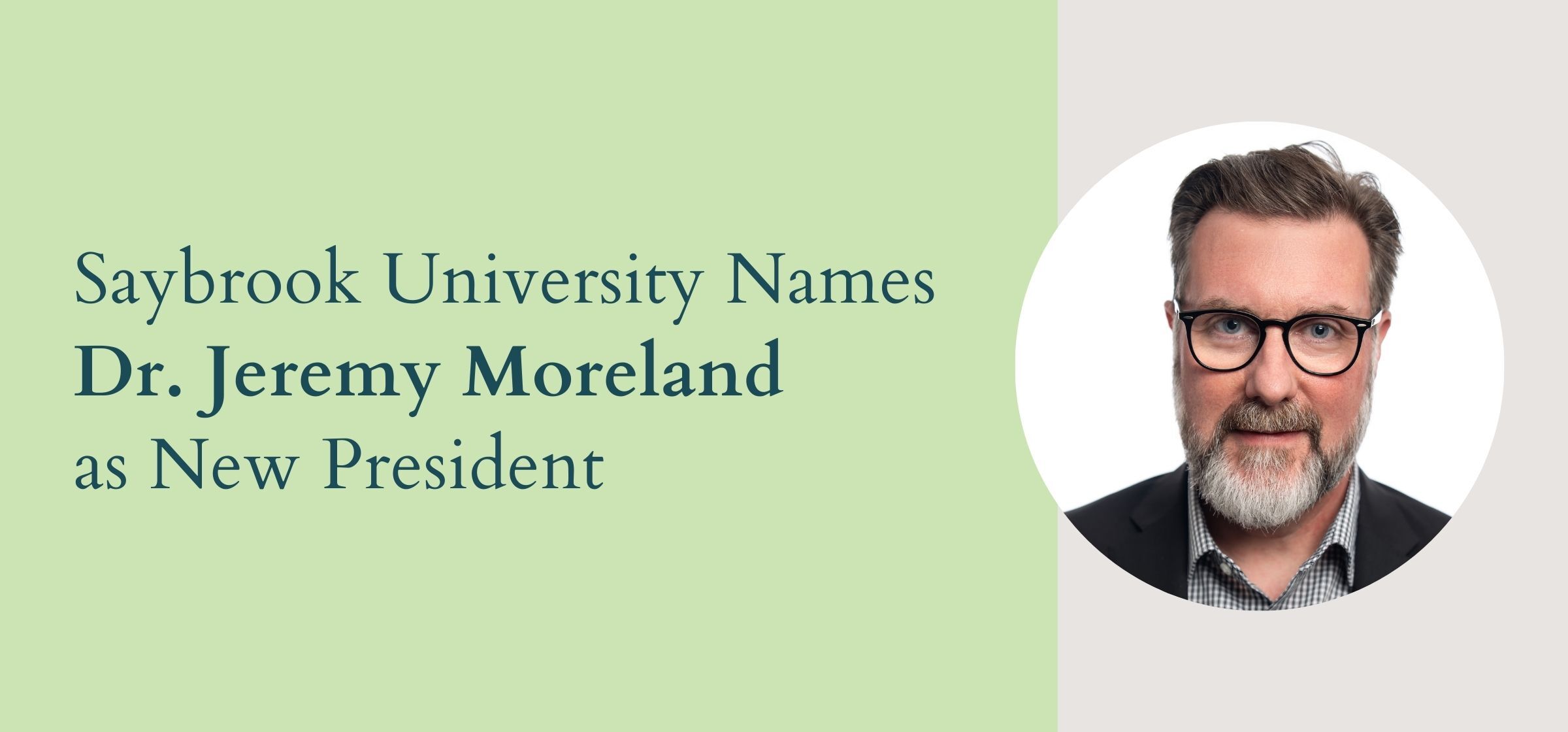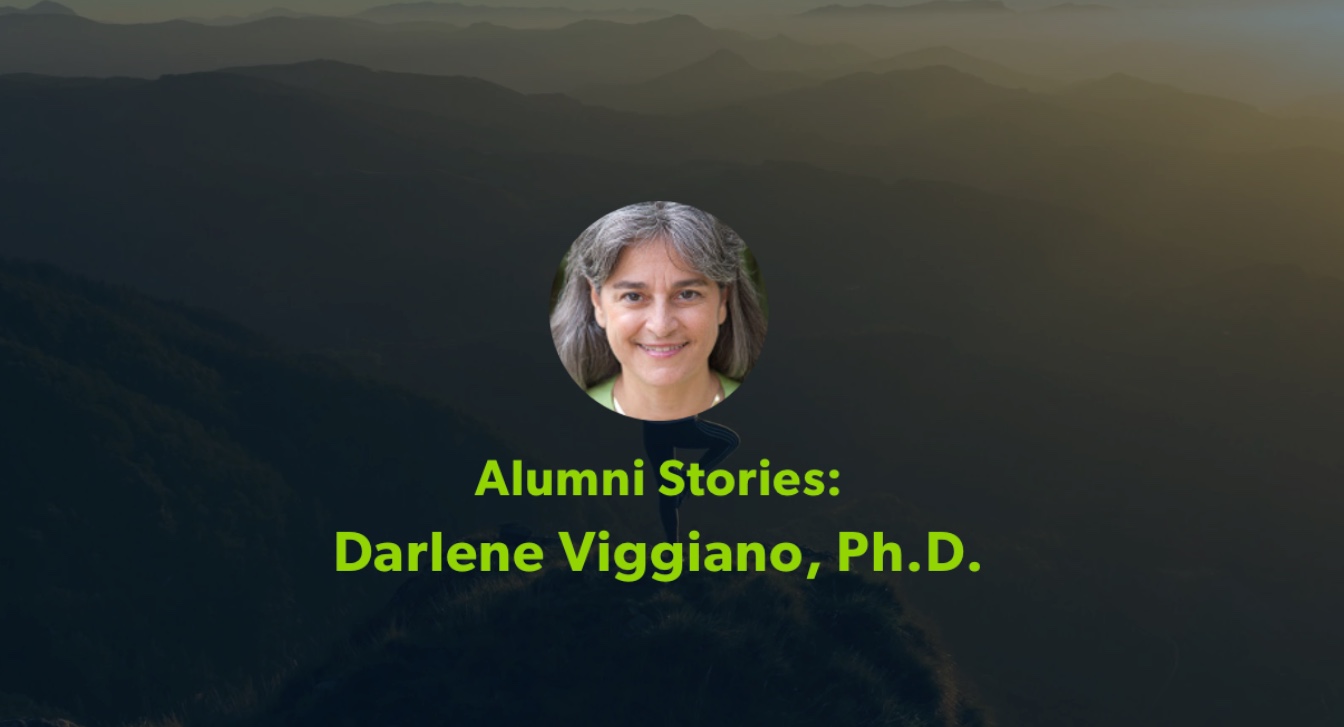The self-directed learning inherent at Saybrook University paved the way for H.D. Kirkpatrick, Ph.D., to have a career in forensic psychology and storytelling.
H.D. Kirkpatrick, Ph.D., was first introduced to humanistic learning principles when studying Carl Rogers and Rogerian therapy while obtaining his M.Ed. at UNC-Charlotte, influencing him to pursue education in humanistic psychology. When he heard about a group of humanistic psychologists in Old Saybrook, Connecticut, who were putting together a school in the Bay Area, then called the Humanistic Psychology Institute, he jumped at the opportunity to study at their university and pursue the California dream.
“Back then, it was right on the cutting edge of counter-weight to behaviorism and Freudism, and that was pretty important,” Dr. Kirkpatrick says. While there, he studied with Carl Rogers and other influential voices in this space. “I had many, many positive experiences through the Saybrook faculty.”
“Part of what was attractive about Saybrook was the self-directed learning process that was inherent in its dynamics and philosophic stance,” he adds.
After graduating, he discovered the courses of study he had chosen to pursue were not enough for him to pass the clinical psychology exam. Instead, he used the self-directed process to find teachers who could fill in the gaps for him. Says Dr. Kirkpatrick, “Learning about the power of self-directed learning and the wisdom that comes from paying attention to one’s inner self, that was something I took away.”
Post-Saybrook
While at Saybrook, he was licensed as a marriage and family therapist and opened a private practice. He later obtained licensure as a clinical psychologist. At the time, he says, states across the U.S. were undergoing mandatory child abuse reporting laws. Studying this led him to find forensic psychology, and he went on to study at the California School of Professional Psychology in Berkeley for certification in forensic psychology, specializing in both criminal and civil matters.
Over time, he became involved with child abuse cases, particularly within the context of high conflict child custody cases. “I developed, for better or worse, a name for myself as someone crazy enough to evaluate those kinds of cases for courts and for attorneys,” he says.
Dr. Kirkpatrick used his learnings from Saybrook in his forensic practice, he says. In a process he learned at Saybrook, he would listen to people’s stories, sitting back and saying very little for a few hours to let their story unfold.
Recent Achievements
About 10 years ago, Dr. Kirkpatrick was working in his forensic practice and learned of a high school acquaintance, Jimmie Kirkpatrick, who had news to share: H.D.’s ancestors enslaved Jimmie’s ancestors.
“That was a mind-blowing, life-changing set of circumstances.” Dr. Kirkpatrick closed his practice to pursue knowledge about his own ancestors, Jimmie’s ancestry, and the history of enslavement.
Together, they’ve worked on a documentary called “A Bonding Truth” about their experience, and they’ve become close friends. “We’ve become brothers, our families vacation together, we’ve become very close,” he says.
In 2022, Dr. Kirkpatrick published a book, “Marse: A Psychological Portrait of the Southern Slave Master and His Legacy of White Supremacy,” and he and Jimmie are working on a book together, with the working title being “Brothers by Enslavement.” They’ve also formed an educational business called Stirring the Ashes, and created a nonprofit foundation called Kirkpatrick Foundation Inc., which aims to help projects that explore the impact of enslavement on America.
With this work, Dr. Kirkpatrick is “pursuing the objective truth about things,” and he works to use solid research methodology to make public presentation and stick to the truth, which are themes that underpinned his forensic work, he says.
His stance is that the U.S. was founded on the enslavement of Indigenous people, Africans, African Americans, and people of all colors suffered as a result. This is an important history to understand where the country is today.
“I want to spend whatever time I have left on this earth by presenting the truth in ways that are pretty clear-eyed,” Dr. Kirkpatrick says.



























